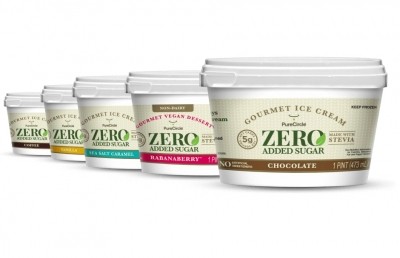Amyris heads into 2020 in growth mode scaling production of sugarcane-based purecane Reb M sweetener

Speaking to FoodNavigator-USA at the SupplySide West trade show last month, Jim Iacoponi, SVP, nutrition ingredients, said 2020 would be a pivotal year for Amyris, which is building a commercial scale facility for purecane in Brazil.
"2020 for us will be a lot about growing the scale of the partnerships we’ve started," he said. "We’re really expected to be in many different categories by the end of next year including beverages, ice cream, baked goods, and chocolate."
The company will also host more dinner events around the country to showcase the versatility of purecane. In a previous event, it collaborated with chef Michael Hung, who created a multi-course meal using purecane including pre-dinner drinks and after-dinner mints at his Michelin-star restaurant, Faith & Flower in Los Angeles, said Iacoponi.
"These curated dinners are a really powerful way to connect with people."
While Amyris will face some stiff competition in the market of zero-calorie, plant-based sweeteners with a number of other global suppliers selling similar products, some using fermentation as part of their production process, Amyris believes its taste profile will set it apart.
'We start with sugar'
Amyris targeted the better-tasting, but less abundant, Reb M steviol glycoside molecule when developing purecane. Amyris converts the carbon molecules of sugarcane into 'purecane' using fermentation to prevent impurities that result from the traditional leaf extraction process, solvents and residual molecules which impact the taste profile, according to the company. Amyris' purecane has 300x to 500x the sweetness of sugar, depending on the application.
"It’s an identical molecule to what you find in a stevia plant but it doesn’t start with the [stevia] plant, we start with sugar," said Iacoponi.
"We think that the idea of fermentation resonates with people, because it’s a natural and millennia-old process for converting sugar into finished product."
It can be used to sweeten beverages, bakery, confectionery products, dairy, desserts, sauces, and snack foods. It has also been shown to boost the taste of fruit flavors. On the ingredient deck, Amyris encourages its customers to use "fermented sugarcane Reb M".
According to Iacoponi, the company requires one-tenth of the acreage to produce an equivalent quantity of Reb M produced by growing stevia plants.
"What we think is a key part of our story is that our Reb M is derived from sugarcane. It starts with sugar. We feed our yeast sugar syrup. We effectively are creating a way to convert sugarcane into a great tasting zero calorie, no glycemic index," Iacoponi said.
Amyris uses Brazilian sugarcane and is in the midst of building a production plant in Brazil to further scale its business and build a commercial supply of purecane.
From anti-malaria drugs to versatile, zero-calorie sweetener
The origins of Amyris as a company began when a team of University of California, Berkeley, post-doctorates developed a way to use brewers yeast to produce the same substance found in the Chinese wormwood plant to create anti-malarial drugs. With a large grant from the Bill and Melinda Gates Foundation, Amyris has scaled its company to deliver over 120 million anti-malarial treatments.
Realizing its intellectual property could be applied to more than just pharmaceutical breakthrough, Amyris turned its attention to another health epidemic: The rising rates of obesity and diabetes worldwide.
"We actually have a way to help address that problem. We can do it by creating a great-tasting zero calorie, naturally-derived substance molecule found in nature and do it way at large scale, at low cost," said Iacoponi.

















